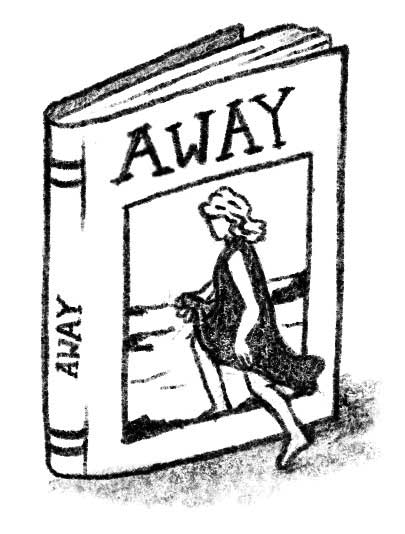Shortly after my debut novel came out in April 2017, the Chapters in Belleville, Ontario, invited me to be part of an event to mark Canada’s 150th birthday. The store’s interest in my book — a fictional diary of the Canadian pioneer Susanna Moodie — seemed understandable. This was the sesquicentennial year, after all, and here was a story about a renowned (and sometimes maligned) settler who spent the latter half of her life in town and who is buried there in a cemetery overlooking Lake Ontario.
Eastern Ontario is a region I know well. In the 1970s, I lived on a small farm north of Grafton, and I later moved to nearby Cobourg, where I began my career in journalism at the Daily Star (Moodie herself had contributed to the Star in the 1830s). It was also in Cobourg that I developed a loose connection to the writer Jane Urquhart, who lived near Colborne, a few miles to the east. Our mid-century modern house was built by a cousin of Urquhart’s mother, whose stories about her Irish ancestors, immigrants to Canada during the potato famine, would inspire one of the author’s most beloved books, Away, many years later.
During the flurry of publicity for my own novel, many readers told me that it reminded them of Urquhart’s Away, which came out in 1993. Indeed, there are numerous similarities: both are historical works about Anglo (mine) and Irish (hers) settlers in nineteenth-century Upper Canada. Both follow brave but complicated women, the mother and daughter Mary and Eileen O’Malley (hers) and the sisters Susanna Moodie and Catharine Parr Traill (mine). And both fictionalize real-life dramas, the Rebellion of 1837 (mine) and the 1868 assassination of Thomas D’Arcy McGee (hers).
Despite the parallels, I was not tempted to read Urquhart’s novel, though I often pretended I had. Perhaps I was jealous of the book’s resounding success. But I’m glad that I have now finally gotten around to it, because it got me thinking about many things, particularly about evolving notions of settler colonialism in Canada.

Nicole Iu
If Away were published today, I wonder, would it be received in the same spirit as it was thirty years ago: As a novel honouring the sufferings of Irish immigrants fleeing famine and persecution? As a celebration of Confederation, a unifying project that has given safe haven to millions of refugees, from Ireland or elsewhere, whose descendants now live in peace and prosperity — a project that continues to welcome people from around the world?
That day at the Belleville Chapters, after the manager seated me at a table piled with copies of my novel, I was mostly ignored for two hours as shoppers inspected displays of placemats and dishes and various tchotchkes. Their indifference didn’t surprise me. What did was that there was no sign of a national birthday party: no balloons, no banners, and none of the promised cake. When I questioned the manager, she smiled apologetically and explained the company had decided to “scale down” the celebratory event. “It didn’t seem right,” she went on, “when, you know, the Mohawk Nation is just down the road.” This was 2017, and the settlers were beginning to apologize. The hideous project of assimilation carried out in residential schools and the historical injustices perpetrated on Indigenous people were finally coming into the spotlight.
The title of Urquhart’s novel refers to the condition of the O’Malley women, Mary and Eileen, both of whom cannot fully inhabit their lives because they have been captured by illusions of romance and the seductive pull of the past with all its superstitions and cruelties. They are said to be “away,” a quasi-magical state that doomed them to living half-lives, neither there nor here. The lesson old Eileen passes on to her granddaughter, Esther, at the novel’s end is the importance of being present, of honouring the past but also being alive to the promise of the future. “I was always turning the moment into something else altogether,” she tells Esther. “You have this gift in you, the ability to be where you are. . . . If I were you I would be where I stand.”
Where do we as Canadians stand today? Can we “be where we are”— atoning for the past but at the same time celebrating a country that is still, despite its flaws, greater than the sum of its many parts and the envy of the world?
Cecily Ross is an editor, novelist, and poet in Creemore, Ontario.

